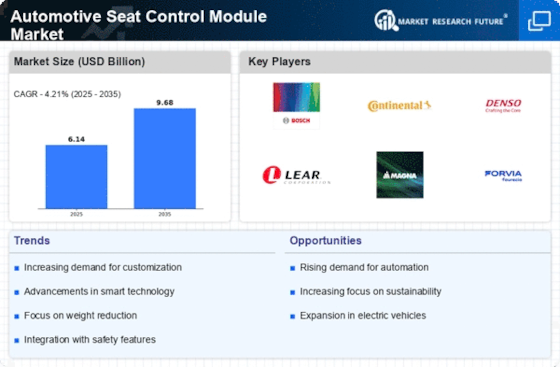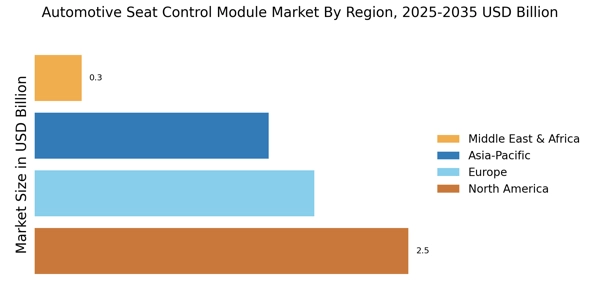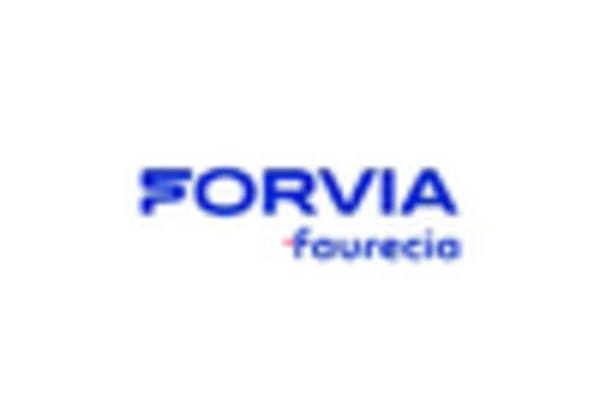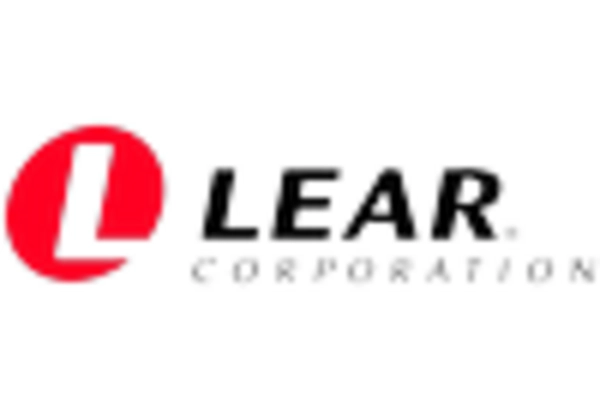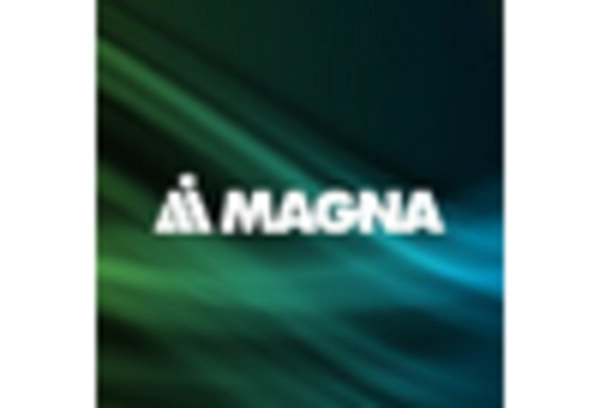Growing Focus on Vehicle Safety
The Automotive Seat Control Module Market is significantly influenced by the growing focus on vehicle safety. As safety regulations become more stringent, manufacturers are compelled to enhance the safety features of their vehicles, including seat control systems. Modern seat control modules are now designed to integrate with advanced safety technologies, such as airbags and collision detection systems. This integration not only improves passenger safety but also enhances the overall functionality of the vehicle. Recent statistics indicate that the automotive safety market is expected to grow at a rate of 7% annually, which bodes well for the Automotive Seat Control Module Market as it aligns with these safety trends.
Rising Demand for Comfort Features
The Automotive Seat Control Module Market is experiencing a notable increase in demand for comfort features within vehicles. As consumers prioritize comfort during their driving experience, manufacturers are integrating advanced seat control modules that offer enhanced adjustability and ergonomic designs. This trend is reflected in the growing sales of luxury vehicles, where the incorporation of sophisticated seat control systems is becoming a standard. According to recent data, the market for luxury vehicles has expanded significantly, with a projected growth rate of approximately 5% annually. This shift towards comfort-oriented features is likely to drive innovation in the Automotive Seat Control Module Market, as companies strive to meet consumer expectations for personalized seating solutions.
Consumer Preference for Customization
Consumer preference for customization is emerging as a key driver in the Automotive Seat Control Module Market. As buyers seek personalized experiences, manufacturers are responding by offering customizable seat options that allow for individual preferences in comfort and functionality. This trend is particularly evident in the luxury and premium vehicle segments, where consumers are willing to invest in tailored seating solutions. Market analysis suggests that the customization segment is expected to grow by approximately 8% over the next few years. This shift towards personalization not only enhances customer satisfaction but also drives competition among manufacturers in the Automotive Seat Control Module Market, prompting them to innovate and diversify their offerings.
Increase in Electric Vehicle Production
The rise in electric vehicle production is a significant driver for the Automotive Seat Control Module Market. As the automotive industry shifts towards electrification, manufacturers are investing heavily in the development of electric vehicles, which often feature advanced seat control technologies. Electric vehicles typically require more sophisticated electronic systems, including those for seat adjustments, to enhance user experience and comfort. The electric vehicle market is projected to grow at a staggering rate of 20% annually, which will likely lead to increased demand for innovative seat control modules. This trend presents a substantial opportunity for the Automotive Seat Control Module Market to expand and adapt to the evolving needs of electric vehicle consumers.
Technological Advancements in Automotive Design
Technological advancements are playing a pivotal role in shaping the Automotive Seat Control Module Market. The integration of electronic and automated systems in vehicle design has led to the development of more sophisticated seat control modules. These modules now often include features such as memory settings, heating and cooling functions, and even massage capabilities. The increasing complexity of automotive designs necessitates the use of advanced seat control technologies, which are projected to grow at a compound annual growth rate of around 6% over the next few years. As manufacturers continue to innovate, the Automotive Seat Control Module Market is likely to witness a surge in demand for these high-tech solutions.


